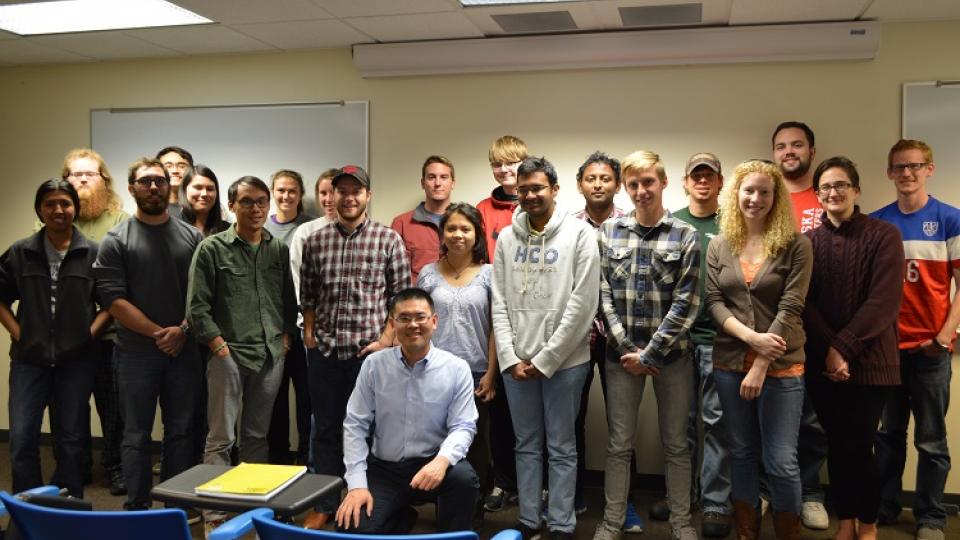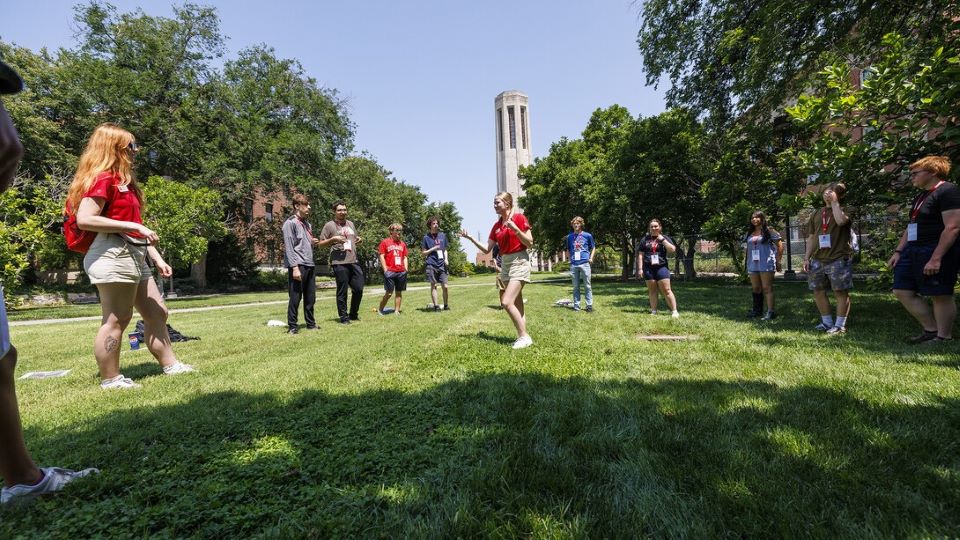
The students of Ruopu Li's Introduction to Geographic Information Systems course recently took their knowledge from the textbook to the garden – the community garden, that is.
"After teaching GIS courses for two years, I found that there are still gaps between the classroom knowledge and the abilities to solve real-world problems," said Li, a geography lecturer. "So it is useful to promote project-based learning, which can inspire students to obtain a deeper knowledge of the subjects they're studying."
Li assigned his students a final project that involved addressing the GIS needs of Community Crops, a Lincoln non-profit organization that helps people grow healthy food collaboratively within the city.
The project objective was to identify new sites that can potentially be utilized as new community gardens. Students worked in groups to develop a GIS project to model and map the land suitability for new community garden sites.
Their coursework culminated in a poster competition that was on display in Hardin Hall. Faculty, staff and students were invited to cast votes for their favorite posters.
The winning groups were, first place: Ann Khambu, James Reece, Beth Peck, Juthamas Fakthongphan; second place: Katie Buchan, Ben Heusinkvelt, Abby Heithoff, Soundar Rajendran; third place: Zion Schell, Jesse Schulz, Jake Drozda, Ashley Weyers.
Some of Li's students said that the project was equal parts challenging and rewarding.
"This project was a good hands-on approach for learning how to use GIS technologies," said Matt O'Nele, a senior environmental studies and fisheries and wildlife major. "Sometimes it was challenging to get the map to look exactly how you wanted with all of the different data you had to manage, (but) it's rewarding to know that your work will help benefit the community."
Ben McShane-Jewell, Community Crops program manager, said that the work conducted by Li's class has been helpful for the organization.
"Their work shows the power of collaboration between academic researchers and local non-profit agencies," McShane-Jewell said. "Dr. Li was a great ally and guided the students to produce work that fit our needs. As a small organization, we often lack the resources to conduct detailed analyses of our work or to evaluate the impact of our programs."
Bhushit Agarwal, a computer science graduate student, said that his findings from the project indicate an "urgent need" for more community gardens in Lincoln.
"We have observed that there are a lot of food deserts where grocery stores aren't within a walkable distance, as we considered one mile as the threshold for the analysis," Agarwal said. "I hope our analysis will not be helpful for just one future garden site, but will be helpful for many future garden sites."
McShane-Jewell said the students' research focused on a key hole in the organization's decision-making process.
"The students focused on where we should locate our next garden sites based on the needs of our participants," he said. "Thus far, we have initiated new garden projects based on what was available. Going forward, thanks to Dr. Li and his students, we will have the opportunity to make strategic decisions about the locations of future community gardens in Lincoln."
For Li, that's what project-based learning is all about.
"As a land-grant university, UNL is in the right position to help address these community needs while educating our next-generation citizens," Li said. "Through this project, students provide community services through their coursework in response to needs and concerns in the community context.
"Our communities also benefit from the creativity and technical solutions from the students."


